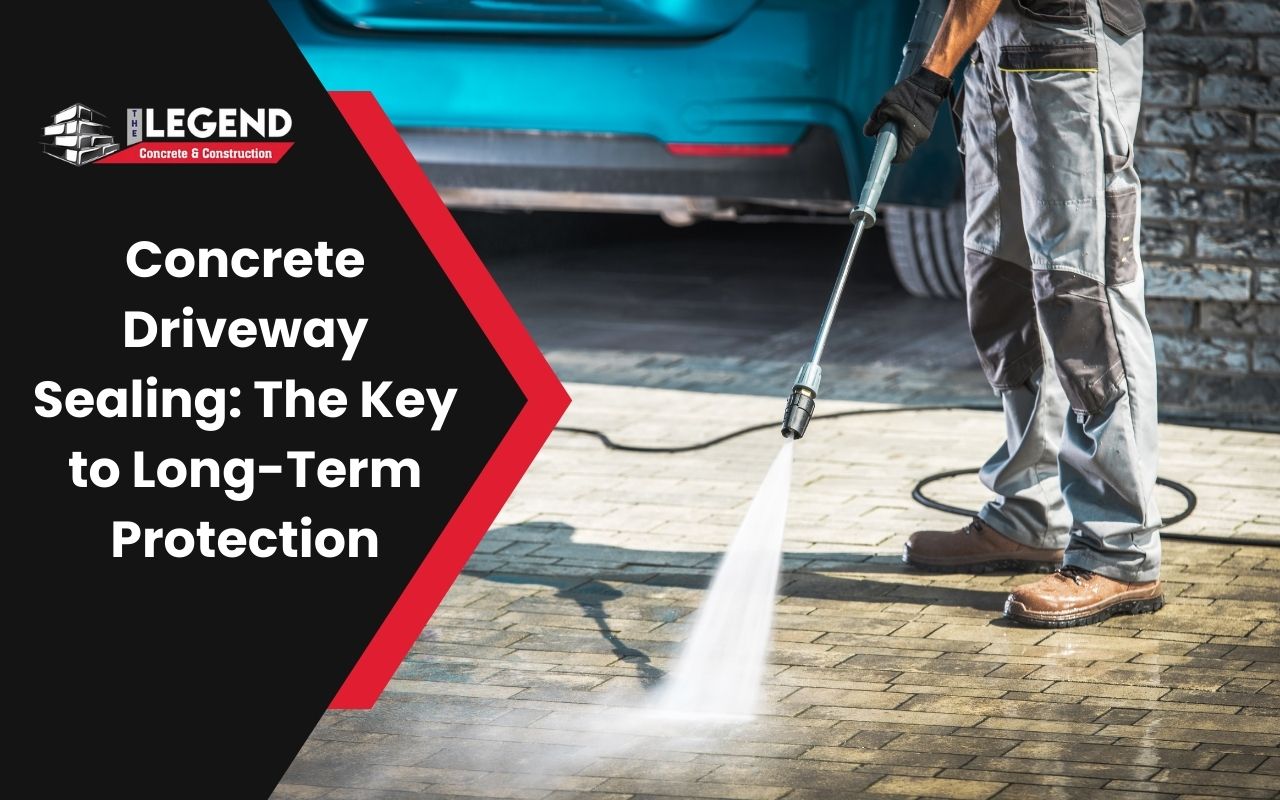
A concrete driveway is a significant investment; it can deteriorate over time without proper care. Concrete driveway sealing is one of the best ways to protect against moisture, stains, and surface damage. Whether you are an architect designing a decorative space, an engineer focused on structural durability, or a construction manager looking to meet project deadlines, sealing plays a crucial role in extending the life of a driveway.
Why Concrete Driveway Sealing Is Essential
Prevents Water Damage and Cracks
Concrete is porous, meaning it absorbs water. Over time, moisture weakens the surface, causing cracks and deterioration. In cold weather, trapped water expands and contracts, leading to even more damage. Sealing:
- Blocks moisture penetration.
- Reduces freeze-thaw damage.
- Strengthens the concrete surface.
Protects Against Stains and Discoloration
Driveways are constantly exposed to oil spills, tire marks, and chemicals that can leave permanent stains. Sealing:
- Prevents stains from soaking into the surface.
- Makes cleaning easier.
- Protects against fading caused by UV rays.
Extends the Life of the Driveway
Applying a sealer every few years helps:
- Maintain a polished, professional look.
- Reduce surface erosion.
- Minimize long-term repair costs.
Choosing the Right Sealer for Your Driveway
Penetrating vs. Film-Forming Sealers
There are two main types of sealers:
- Penetrating sealers: Absorb into the concrete for deep protection.
- Film-forming sealers: Create a surface barrier that adds a glossy finish.
Best Sealers for Different Conditions
- For heavy traffic areas: Use a high-performance acrylic sealer.
- For harsh weather exposure: A silane/siloxane penetrating sealer works best.
- For decorative concrete: A glossy, film-forming sealer enhances color and shine.
How to Seal a Concrete Driveway
Step-by-Step Application Process
- Clean the surface – Remove dirt, stains, and debris.
- Let it dry completely – Ensure no moisture is trapped before sealing.
- Choose the right sealer – Pick one based on the driveway’s condition and location.
- Apply the sealer evenly – Use a roller or sprayer for smooth coverage.
- Allow proper curing time – Let the sealer dry for at least 24 hours before use.
How Often Should You Reseal a Driveway?
- High-traffic driveways: Every two years.
- Moderate use: Every three to four years.
- Decorative concrete: Every one to two years.
Additional Tips for Long-Term Driveway Protection
- Avoid using de-icing salts in winter, as they can break down the sealer.
- Reseal sooner if the surface starts looking dull or faded.
- Keep an eye on water absorption—if water no longer beads up, it is time to reseal.
Signs Your Driveway Needs Resealing
- Water no longer beads on the surface.
- Fading or discoloration appears.
- Small cracks begin to develop.
Get Professional Sealing for Long-Lasting Protection
Sealing your driveway protects it from damage, stains, and weather exposure. Whether you need durability for high-traffic use, a sleek decorative finish, or long-term structural integrity, sealing ensures long-lasting performance. Call (334) 333-8698 today for a free estimate on concrete driveway sealing.
